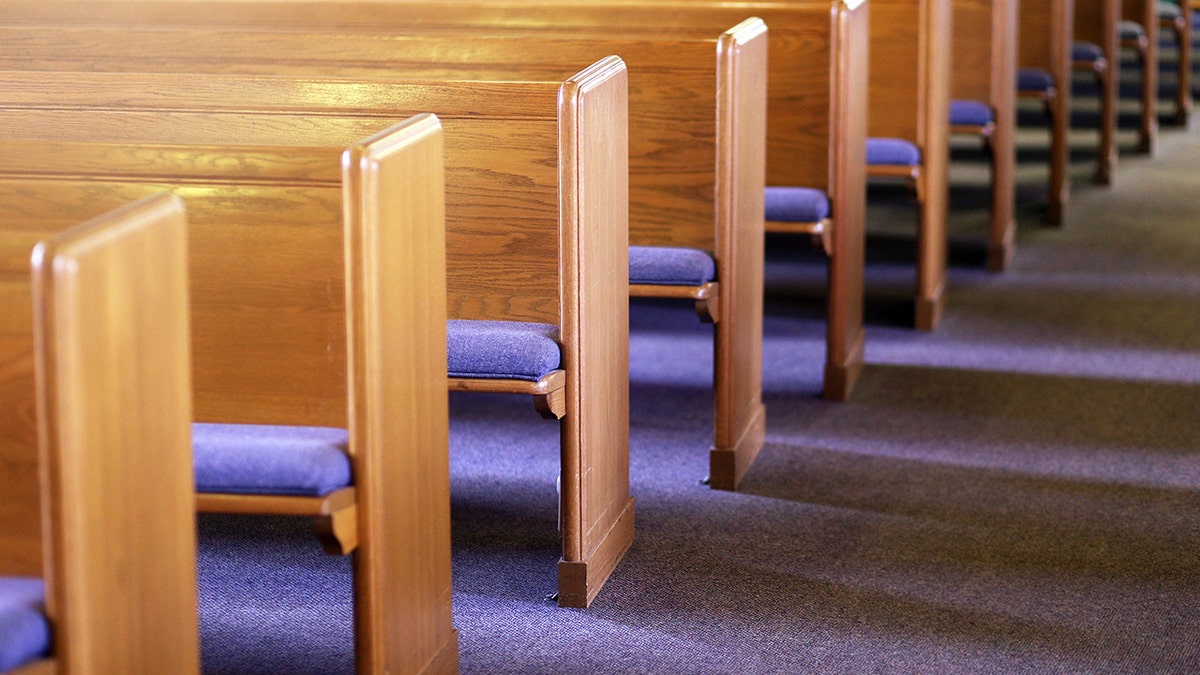SC valedictorian draws applause, goes viral for speech about faith amid hardship
Lydia Owens, a high school valedictorian in South Carolina, has gone viral for a speech detailing how she learned to find her value in her faith amid recent hardships in her life. (WHNS)
Sitting next to my dad in the pews as a small child on Sunday morning, I can recall him warmly putting his hand on my knee during a quiet moment in the liturgy.
Afterward, he’d load us into our family van and we’d all go out for donuts at the only Tim Horton’s open in South Florida. He’d go inside, and I’d run in with him hopping around in excitement. My selection was always the same – the tasty Boston cream.
Now, it turns out these warm childhood memories of my dad may have much more to do with influencing my adult Christian faith than I had previously thought.

The flight of resident fatherhood from the home over the past 60 years may offer the best explanation for the collapse of Christianity in the U.S. (iStock)
You see, the flight of resident fatherhood from the home over the past 60 years, according to Communio’s Nationwide Study on Faith and Relationships, may offer the best explanation for the collapse of Christianity in the United States over much of the last 40 years. The study concludes that religious nonaffiliation is unlikely to stabilize until 25-30 years after married fatherhood stabilizes.
CHRISTIAN LEADER DECLARES JUNE ‘FIDELITY MONTH’ INSTEAD OF ‘PRIDE MONTH’
This means evangelists interested in renewal must become effective in fostering healthy, Christ-centered marriages for a revival to take root.
This conclusion is drawn from the results of a nationwide survey of 19,000 Sunday church attendees conducted during worship in 112 evangelical, Protestant and Catholic congregations in 13 different states. Overall, the survey found 80% of all Sunday church attendees in the United States grew up in a continuously married home with both biological parents at a time when this is becoming increasingly rare.
This trend held across age groups and was visible from the oldest Gen Z to the youngest Boomers.
It’s well-known that the current growth in religious nonaffiliation began sometime between 1986-1991 – about 25-30 years after the start of the sexual revolution. In 1960, you begin to see explosive growth in nonmarital births and divorce. This had the effect of shrinking the number of children who grew up with a dad in the home.
Much has been written about the negative effects on children – ranging from poverty, to mental health and low educational outcomes – when dad is not in the home. It also turns out that it has a big impact on your likelihood of experiencing faith.
Indeed, a growing body of research on religion shows that a child’s relationship with his or her father is critical for faith practice. A four-decade, longitudinal study following 350 families and over 3,000 people across multiple generations published by Oxford University Press seeking to understand reasons for effective religious transmission found:

In 1960, you begin to see explosive growth in nonmarital births and divorce. (iStock)
"... That, for religious transmissions, having a close bond with one’s father matters even more than a close relationship with the mother. Clearly the quality of the child’s relationship with his or her father is important for the internalization of the parent’s religious tradition, beliefs and practices."
The researchers go on to conclude:
"Closeness to fathers matters more than closeness to mothers in religious transmission. Among Evangelical fathers, there is a 25-point difference in [the professed faith] similarity [between parent-child] for children who feel emotionally close to fathers compared to those who are not close; for Evangelical mothers the difference is just 1 percentage point. A similar pattern exists for Mainline and Catholics."
Research by Dr. Paul Vitz, emeritus professor of psychology at New York University, sheds further light here. Vitz shows that the failure for a child to form a healthy attachment to his or her father often manifests itself in the later loss of faith, interest in New Age spirituality, or the manifestation of agnosticism or atheism.
While unmarried fathers can become effective fathers, in general and on average, unmarried fatherhood does not produce the parenting styles that both lead to human flourishing and adequate faith modeling and formation.
5 THINGS PASTOR TIM KELLER TAUGHT ME BEFORE HE PASSED
All of this largely explains why both single and married adults who grew up in continuously married homes make up the vast majority of Sunday attendance in churches.
Because our family of origin remains an exogenous factor, it is of course impossible for a religious person to choose to grow up in a continuously married home. An adult’s decision to attend church is necessarily influenced by the conditions of their childhood.
Not all adults who stop attending church do so because of a failure in their parents’ marriage or a failure in their relationship with their father. Conversely, the failure of a parent’s marriage does not always mean an adult will not attend church. For example, the survey found that 1 in 5 attendees at church on Sunday grew up in a home that did not remain married through childhood.
Yet, the preponderance of data on the families of origin of church attendees should cause Christian leaders to see the environment produced by a healthy, faithful marriage as a vitally important, but not a sufficient, criteria for effectively transmitting Christian faith at a societal scale.
CLICK HERE TO GET THE OPINION NEWSLETTER
In the 13th chapter of the Gospel of Matthew, Jesus tells the Parable of the Sower. In it, the sower throws seed and some fell along the path and the birds ate them. Other seeds fell on rocky soil but were scorched by the sun. Other seeds fell among thorns and were choked when they grew. Finally, "other seeds fell on good soil and brought forth grain, some a hundredfold, some 60, some 30."
In the 21st-century West, adults who grew up with married parents appear most frequently to be the healthy soil for the seeds of faith to flourish.












































